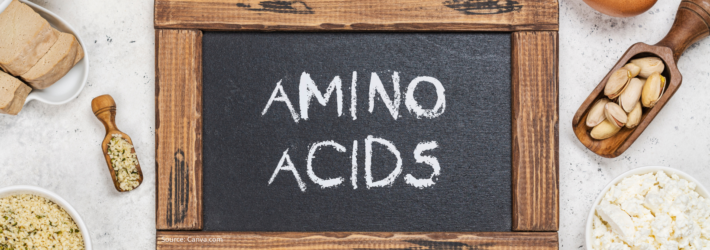This post was originally published as a success story on Healthy Gut at the SCDLifestyle website, reprinted with permission. The original article can be found here: Dietitian-ends-25-years-of-constipation.
The Constipation Started in My Teens… and Lasted 25 Years
My struggles with chronic constipation started in high school. I distinctly remember this time period because it was around the same time that I started dating. One night, I was getting ready to go out on a date and my stomach was so distended that I looked six months pregnant and it felt like a hot poker was searing into my left side. I could feel it coming on that afternoon, starting with the left sided pain and then the severe bloating, and I would tell myself “please, please go away, not now!” I would try to sit on the toilet and massage my abdomen to get the gas out. This became a common practice of mine, sometimes it helped, most of the time it didn’t. I ended up wearing dorky elastic pants and suffering through the date, but the whole time I couldn’t wait for it to end so that I could get home and lay down. I struggled with these symptoms for over 25 years!
After experiencing these IBS episodes for a few months, my mom took me to a local doctor and he said that all I needed to do was to purchase some high fiber bars and drink plenty of water. If only it were that simple! That was the start of a 25-year journey to many different practitioners, both conventional and holistic, to try to find a solution to my bowel problems.
My Constipation Dictated Where I Went to College
To relieve my chronic constipation, I had to take numerous laxatives. If you have ever had to take laxatives, you know that they aren’t predictable. You have to know where the bathrooms are at all times – accidents could ruin your life, and constantly running to the bathroom doesn’t help you fit in as a teenager or as an adult. I would typically alternate laxatives with enemas. Enemas are very uncomfortable but at least you can get it all out without having to deal with urgent surprises at inopportune times.
The fact that I couldn’t have a normal bowel movement shaped where I went to college. Really, it did. Most universities require that you live on campus for the first two years unless you have a home within a certain distance. There was no way that I was going to subject myself to dorm living – having to share a bathroom with 3 or more girls? It wasn’t going to happen. So I stayed home for the first two years and went to my local college.
Through the years, I just had to live with the pain and the constant necessity to use “artificial means” to go the bathroom. What was really confusing to me is that I never even had the urge to go. I would think, “if I was stranded on a deserted island, I would die from my guts exploding because I wouldn’t have access to laxatives and enemas.” It was very depressing that I couldn’t be normal. Despite this, I was able to graduate from college with a degree in nutrition, successfully hiding my condition from all of my foodie friends.
I Am a Registered Dietitian and Still Can’t Poop
During my dietetics training in graduate school to become a registered dietitian, a friend told me about a physician that would spend time with you and actually listen to your problems. So, with high hopes and a food journal in hand – documenting that I was eating plenty of fiber (I wasn’t going to have her tell me to eat more fiber at this point) – the day of the appointment arrived. She did an x-ray and told me “you are full of gas and poop”. No, you don’t say, imagine that, especially when my top complaint was that “I CAN”T POOP!”
My prescription was to retrain my bowels to move (unfortunately, I had already tried that). I would sit on the toilet at the same time every day and practice deep breathing exercises. All that did was put my butt to sleep – it certainly didn’t wake up anything else. And did I mention, I even went to biofeedback for months to help train my bowels?
Well, this particular doctor’s remedy was a little different. I was to take 1 heaping tablespoon of Metamucil in the morning and at night – coupled with 2 tablespoons of Milk of Magnesia morning and night. Now I was very familiar with these two products. Anyone who has suffered with chronic constipation probably is, but coupling them together, that might actually work! So I tried it and oh my gosh – I could barely get through my internship that week. I had to take sick time and go home because my stomach was so distended, I couldn’t move. I persevered with that plan for 2 weeks, wearing what’s called “moo moo” dresses to look halfway presentable. Basically, my symptoms significantly worsened and I finally gave up. Another remedy down the toilet – no pun intended!
After graduate school, I started working as a registered dietitian and continued to manage my symptoms with the usual (enemas/laxatives). What do you think dietitians learned in their training to treat constipation? You’re right, the same old mantra “eat more fiber, drink more water.” I worked in a hospital and I felt like a hypocrite, repeating that mantra to my patients with constipation, when it certainly hadn’t worked for me. But what else could I try?
I Began to Search the Internet For that One Magic Trick
As the internet was becoming more popular (I’m showing my age, but in college, we actually had to physically go to the library to do research), I began searching endlessly on Google and PubMed to find out if there was anything else that I could try. Every new thing that I found would get my hopes up – this is going to be the one remedy, the one thing that works.
Here is a summary of everything that I have tried over the years:
- Thirty-plus grams of fiber, along with a low-fat diet with plenty of fruits and vegetables, you know, what we are all supposed to be eating. Check.
- Twice-daily dose of fiber supplements like Benefiber, Metamucil, FiberCon and Citrucel. Bloating, more gas. Check.
- Biofeedback, exercise, yoga. Good for overall health, but no constipation relief for me.
- Flaxseed, fennel tea, peppermint oil. Yep.
- Apple juice blended with parsley. Strange.
- Miralax twice-daily dosage resulting in gas so vile it would shame a thousand spraying skunks. Check
- Milk of Magnesia plus Metamucil. Nice combination in theory, blow-out in reality.
- FODMAPS, gluten free. Try 6 months of faithful, fanatical diligence with some relief (about 50% relief from the bloating, constipation – no change).
- Probiotics like Align, Activia, even homemade kefir. Just increased the gas and bloating.
- Prescription anti-depressants. Motility – still at a standstill.
- Prescription Zelnorm (discontinued in 2007 for causing heart attacks and stroke – does that tell you anything?)
- Prescription Amitiza. Very disappointing.
- Prescription Linzess…didn’t need to go there because at this point, I had found the answer!
I Was Convinced My IBS-Constipation Was a Genetic Motility Disorder
By this time, I had worked as a dietitian for 6 years and had graduated from a doctoral program with my PhD. I had moved to a small town and was working as a university professor teaching nutrition. I was still managing my symptoms in the usual manner. I had resigned myself to the fact that I must have a motility problem stemming from a genetic mutation and I am just going to have to live with it. But after my second child was born, I started experiencing daily bloating so severe I looked and felt 7 months pregnant. This wasn’t my usual IBS symptoms. When I awoke in the morning, my stomach would be nice and flat. I could put on my usual pants and still have some breathing room. But by the end of the day, my abdomen would have increased 5 inches in size. I felt my stomach would pop like a balloon. People at work would comment on the size of my stomach. I would tell them, you have a PhD in nutrition, help me figure this out! None of us could. It was all I could do to hide my huge belly from my students. My symptoms worsened to the point that I just couldn’t live with it any longer. I was missing class and it started to impact my work.

I Started to Believe Surgery Was My Only Option
I really escalated my research and made more doctor appointments. I had an MRI, ultrasound, colonoscopy, biopsies, more blood tests and another x-ray. I was told that nothing was wrong with me. I almost wished that I had had something, anything to explain this misery. I told my gastroenterologist, “it is almost as if the simple act of eating brings it on.” His response was that he couldn’t do anything for me and maybe I just need to learn how to relax. “Go home and drink some wine” were his exact words.
Don’t get me wrong, relaxing is important, but it is hard to relax when your stomach is so large that you can’t breathe. I would have to plan what clothes to wear and sometimes change clothes through the day to fit my girth as the day wore on. I became very depressed and really didn’t know what else to do. I actually entertained the idea of getting a section of my colon removed as a last resort.
A Student of Mine Introduced Me to SCD and My Life Was Forever Changed
Two years later, I found the answer to my problems and I owe it all to a student who was taking one of my nutrition courses. She was very open-minded in regards to nutrition and lifestyle and softly suggested I read two books (Gut and Psychology Syndrome – GAPS diet and Breaking the Vicious Cycle – Specific Carbohydrate Diet (SCD). These books taught me about the microbiome in the intestinal tract (a colony of microorganisms that live synergistically within their host). I learned that the bacteria which make up the microbiome influence your health and that it is possible to manipulate the microbiome with nutrition. When I read those books, it was like a light bulb went off. I finally knew that this was my problem, but it took me 6 months to start the GAPS/SCD.
I Had Many Fears About Starting the SCD Diet, as It Went Against Everything I was Taught as a Dietitian
Why did I wait so long to start the diet if I knew this was my problem all along? It took that long to absorb all of the new information that I had learned and to relearn major concepts that I was taught as a registered dietitian. Cut out grains and sugar? But, but, all things in moderation… that is what I was taught. Eat more fat? Umm, that doesn’t jive with the American Heart Association and the Academy of Nutrition and Dietetics. We should all be on low fat diets, make half your carbohydrates whole grains, right? This had been drilled into my head for years in my training and I practiced what I preached – but was it working for me? NO! What would my colleagues think? How would I change my teaching strategies based on this “new to me” information? I didn’t see GAPS or SCD in any peer-reviewed, scientific papers – was this “evidence based?”
Within 5 Days of Starting, I had My First Bowel Movement By Myself… in 25 Years
My symptoms overtook my professional fears. The day after Easter, April, 2012, I was riding back from my Aunt’s house after eating a big meal (just to note, I had been gluten free for 7 months by this time). It was a 3-hour trip and my stomach had expanded so large that I had to unzip my already stretchy pants. As I said earlier, my bloating dictated my entire wardrobe. Even my stretchy pants couldn’t accommodate my ever-expanding waistline and I was having trouble breathing. I had to lay my seat back just to stretch out enough to be comfortable. That was it!
I looked at my husband sitting in the driver’s seat and I said “I am starting the GAPS/SCD diet tomorrow.” And I did just that. That evening, I went home, made a grocery list and purchased everything that I needed. I started chicken soup in the crockpot that night, and the next morning I was on my way. It was tough. It was a totally new way of eating and the first few days were brutal due to the die-off symptoms. The constipation, bloating, fatigue, and a new symptom, heartburn, intensified. But I knew to push through it. And get this – within 5 days, I had a bowel movement for the first time, by myself, in over 25 years! It was a miracle, a total miracle! As time went on, I was feeling better and better. Within a month, the constipation and bloating had totally disappeared.
Further Testing Showed I Had a Gut Infection
I conducted more research on the microbiome and found, through further testing, that I had dysbiosis (imbalance of intestinal bacteria) and methane-positive small intestine bacterial overgrowth (SIBO). More than likely, the SIBO developed from either the multiple antibiotics that I received to treat complications from my cesarean-section (c-section) with my second child, or adhesions from having a second c-section.
I Decided to Conduct a Clinical Trial on the Efficacy of the SCD to Treat IBS
I was so astounded with the results of this diet that I wanted other dietitians to know about it. If this diet had actually been published in the scientific literature, maybe I would have found it sooner. I decided to conduct a clinical trial on the efficacy of the SCD to treat IBS. I worked with a gastroenterologist and enrolled patients with severe IBS. Following the SCD is a lifestyle change. It takes planning menus, cooking meals and being very selective and careful when eating out. But isn’t it worth it? If I could just get them to stick it out for 2 weeks, then they would be hooked for sure. Unfortunately, that wasn’t the case.
You have to be mentally ready to make such a large lifestyle change and have plenty of support, regardless of how bad your symptoms are. I could only publish data on one person. But, for this one person, the SCD changed her life as it did mine. Not only does the SCD work well for constipation, it helps people with diarrhea too.
To read the published case study abstract regarding this patient’s excellent recovery from urgent, consistent diarrhea, click on this link: Specific Carbohydrate Diet Case Study
The SCD Changed My Personal and Professional Life
The SCD dramatically improved my IBS-Constipation. I eventually had to take care of the SIBO through the judicious use of antibiotics and herbs, and now I am doing great. Since treating the SIBO, I have been able to liberalize my diet and I mostly follow a paleo template. Having this experience has also strengthened my teaching and I have added integrative and functional medicine to the nutrition program’s curriculum.
If you need help with your constipation, then please schedule a free, SIBO troubleshooting consultation.



